Volunteer Creates a Safe Space for Caregivers
For National Volunteer Week, we are highlighting one of our support group facilitators.
Starting as a young caregiver
Jenn Chan and her brother, Jon, grew up with her grandmother, Leung In. When Jenn was in her 20s, she noticed that her grandmother, who had diabetes, needed more help with daily tasks. Jenn, who had just graduated from college, stayed to live with her grandmother to help out. Jenn cared for her grandmother in San Jose for over 10 years.
While caring for her grandmother, Jenn attended caregiver support groups. She found them to be very helpful. “I was able to meet people who were in different parts of the caregiving journey,” said Jenn. “It gave me perspective and allowed me to see the full caregiving landscape.” It also helped Jenn feel that she wasn’t alone in her experience.
After Leung In passed away, Jenn attended grief support groups. Jenn went through the transition faced by many caregivers when they have finished their caregiving journey. She needed to figure out how to spend the time that used to be filled with caregiving duties.
Looking to give back
The caregiver and grief support groups Jenn had attended helped her in more ways than she expected. For Jenn, “being part of a community that understood what I was going through felt really comfortable.” She started looking for ways to give back to the caregiver community.
During her search, Jenn joined the Aging Services Collaborative of Santa Clara County. Through participating on the collaborative, she learned of other volunteer opportunities. She joined the Silicon Valley Walk to End Alzheimer’s planning committee.
Through these activities, Jenn heard about an opening for a volunteer support group co-facilitator. The Alzheimer’s Association and OpenHouse co-sponsor a monthly support group in San Francisco for LGBT caregivers of people with Alzheimer’s or other dementias.
As a member of the LGBT community, the opportunity to facilitate a support group for other LGBT caregivers peaked Jenn’s interest. Her experience as a caregiver for an older loved one helped her understand some of the challenges members faced. Jenn’s volunteer efforts had helped her gain an understanding of the Alzheimer’s Association and dementia.
Jenn interviewed to be a support group facilitator. Once accepted, she went through training provided by the Alzheimer’s Association. Jenn co-facilitates the group with a staff member from Openhouse.
Supporting other caregivers
Support groups provide a place for caregivers to talk about their feelings and ask questions about resources. It’s a confidential space where they can express themselves. Other attendees understand what participants are going through, even if individual experiences are different.
Facilitators play a variety of roles. They ensure that the space is set up appropriately and welcome attendees. They manage the time so that all attendees who wish to speak have a chance to share. Facilitators also share information on Alzheimer’s dementia and community resources. They typically facilitate one 60 to 90-minute support group session each month.
It can be difficult for busy caregivers to make time to attend a support group. Once they’ve experienced the benefits, many look forward to returning. They are grateful to have the space to come and share with others.
The very act of attending a support group is one way that caregivers take care of themselves. Jenn likes to acknowledge this in group. She encourages group members to talk about self-care and share tips.
Helping caregivers support each other
Jenn enjoys seeing the friendships that form among support group members. For Jenn, “that’s the magic” of support groups.
The facilitator is not expected to have all the answers. Often, caregivers share tips with each other. In Jenn’s group, one caregiver shared that she was getting frustrated when her loved one with Alzheimer’s frequently asked the same question.
Another member shared that their family had decided it was okay to tell “fiblets” (i.e., responses that are not completely accurate). Family members gave the answer that worked best in the moment, even if it was not the exact truth. This suggestion was very helpful to the frustrated caregiver.
Personal benefits of volunteering
Support group facilitators come from a variety of backgrounds. Some are former caregivers, such as Jenn. Others are professionals in the field, such as social workers, counselors or others who have experience with older adults. They all go through training and have regular opportunities for professional development.
While our facilitators are giving to the community, they also experience personal benefits. Jenn shared that her facilitator practice of listening and expressing compassion carries over. It has become more a part of her daily life. She has also become friends with staff and other volunteers from the Alzheimer’s Association and Openhouse.
Facilitators form a community with the group. Jenn looks forward to the group. She thinks about her group members during the month, coming up with ideas or finding materials to share with them.
While we ask support group facilitators to commit to facilitating the group for at least one year, many stay on. Jenn has already been co-facilitating for over two years. “Since many people were a resource for me when I cared for my grandmother,” says Jenn, “I enjoy being able to give back to the community.”
Jenn has become an activist for volunteering and for supporting caregivers. She recommends that former caregivers consider program volunteer opportunities, such as support groups or Helpline. They can use what they learned in their journey to help others. Jenn encourages former caregivers to “pass on the knowledge” they gained from their experience.
We are so thankful to Jenn and all of our wonderful volunteers at the Alzheimer’s Association. You are critical to all that we are able to accomplish in care and support, fundraising, research, building awareness and advocacy.
If you would like to learn more about volunteering as a support group facilitator, visit our website or call 800.272.3900. Learn more online about attending our support groups or call 800.272.3900 for more information.
Learn more:





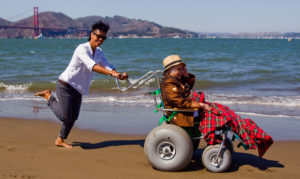
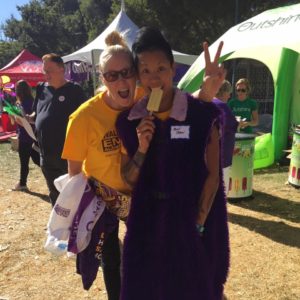
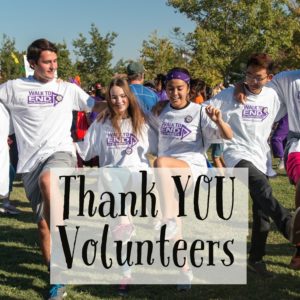
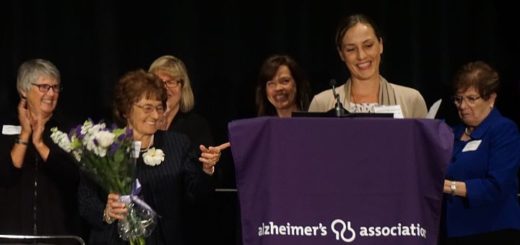
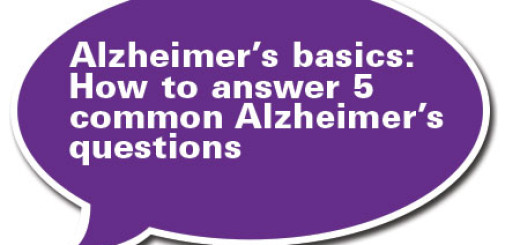
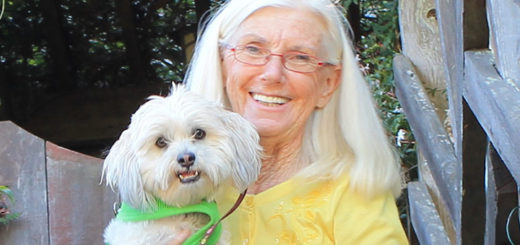










I serve on the Sacramento County Commission On Aging. We are working on points of focus to aid in advocacy for seniors. Ideas ranging from transportation to a single point of contact for seniors and ageing issues. I covet your suggestions and input.
Thanks for the note, Marshal. Transportation is certainly an issue – it can be difficult for those with Alzheimer’s or other dementias to navigate public transportation. Many seniors are providing care to a senior with dementia – there are not enough day programs and respite funding opportunities to support these caregivers. The majority of people with Alzheimer’s and other dementias are not diagnosed or informed of the diagnosis. Training for healthcare providers and the community are both needed. You may want to look at the Dementia Friendly movement and see what the Commission could do to make Sacramento County more dementia-friendly.